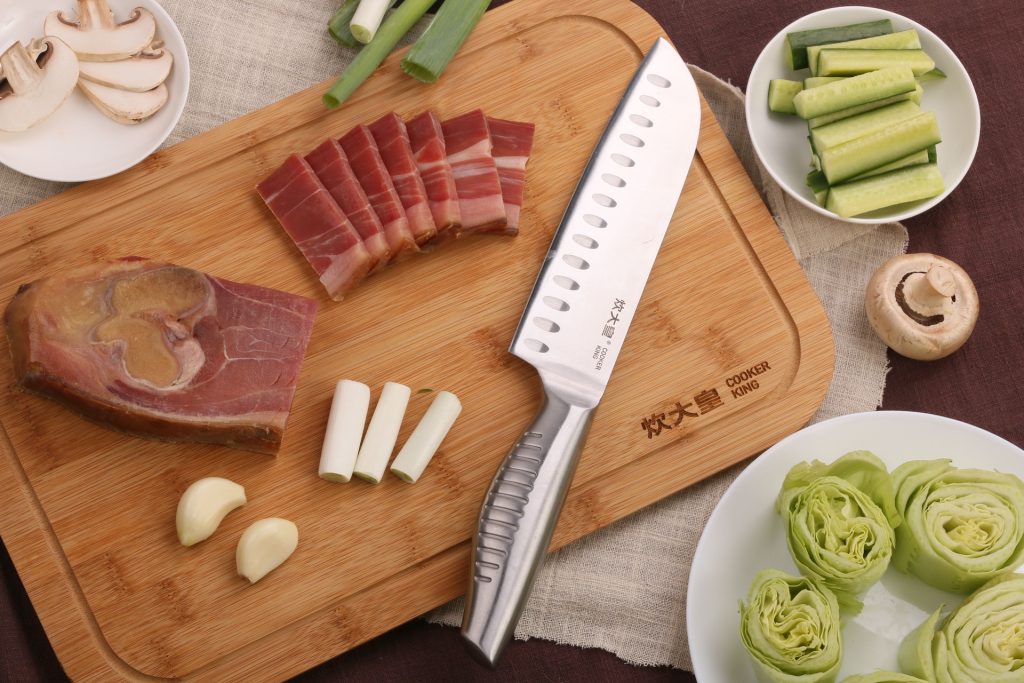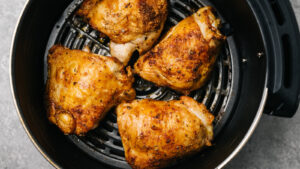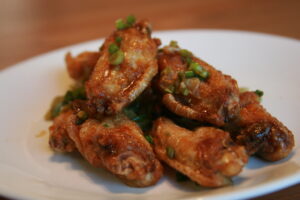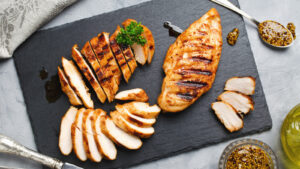In the realm of culinary artistry, the kitchen knife is the unsung hero, the quiet companion of every cook and chef. It is an essential tool that often goes unnoticed until it’s not performing as it should. But how important is a good quality kitchen knife, really? As we embark on a culinary journey through this article, we will explore the significance of having a high-quality kitchen knife, its impact on cooking, safety, and overall culinary experience.
The Heart of the Kitchen
A kitchen knife is, without a doubt, the heart of any kitchen. From slicing, dicing, chopping, and mincing to julienning, filleting, and carving, it plays a pivotal role in almost every cooking task. Whether you’re preparing a simple home-cooked meal or crafting a gourmet dish in a professional kitchen, your knife is your trusty companion.
Precision and Control
One of the most significant advantages of a high-quality kitchen knife is the precision and control it offers. Imagine trying to finely mince garlic, julienne vegetables, or debone a chicken with a dull and unwieldy knife. The frustration and inefficiency would quickly become apparent.
A sharp and well-balanced knife allows you to make precise cuts with minimal effort. It responds to your movements, providing the control needed to execute intricate techniques. This precision can elevate your cooking to new heights, enhancing the aesthetics and texture of your dishes.
Efficiency in the Kitchen
Time is of the essence in the kitchen, and a good quality knife can save you plenty of it. A sharp blade effortlessly glides through ingredients, reducing the time and effort required for meal preparation. Whether you’re a professional chef managing a busy restaurant kitchen or a home cook trying to get dinner on the table quickly, a high-quality knife streamlines the process.
Efficiency also translates to safety. A dull knife is more likely to slip, increasing the risk of accidents. A sharp knife, on the other hand, allows for controlled, predictable movements, reducing the chances of mishaps.
Versatility and Adaptability
A good quality kitchen knife is incredibly versatile and adaptable. It can handle a wide range of tasks, from slicing delicate herbs to breaking down tough cuts of meat. Investing in a few essential knives, such as a chef’s knife, a paring knife, and a serrated knife, covers the majority of your kitchen cutting needs.
Furthermore, a sharp knife can adapt to different cooking styles and cuisines. Whether you’re exploring Japanese sashimi or French julienne, having the right knife ensures you can tackle any culinary challenge with ease.
Preserving Ingredient Quality
In the culinary world, ingredient quality is paramount. A high-quality kitchen knife plays a significant role in preserving the quality of the ingredients you work with. When you use a sharp knife, you minimize cell damage, which means less juice leakage and better flavor retention in fruits and vegetables.
Moreover, precise cuts achieved with a sharp knife allow for even cooking. Uniformly sized ingredients cook at the same rate, ensuring that your dishes turn out consistently delicious.
Investing in Quality
Now that we’ve established the importance of a good quality kitchen knife, let’s delve into the aspects that make a knife truly exceptional.
Blade Material
The blade material is a critical factor in determining a knife’s quality. High-carbon stainless steel is a popular choice due to its durability, corrosion resistance, and ease of maintenance. Carbon steel blades, although prone to rust, are renowned for their exceptional sharpness and edge retention. Damascus steel, known for its beautiful patterns and excellent performance, is another high-end option.
Sharpness and Edge Retention
The sharpness of a knife is paramount. A sharp blade not only makes cutting effortless but also enhances safety. Dull knives require more force, increasing the likelihood of accidents. High-quality knives are crafted to maintain their edge for a long time, reducing the need for frequent sharpening.
Balance and Comfort
The balance and comfort of a knife are often overlooked but crucial aspects of its quality. A well-balanced knife feels natural in your hand, reducing fatigue during extended periods of use. The handle should provide a secure grip and be comfortable to hold.
Construction and Design
The construction and design of a knife influence its durability and performance. Knives can be forged or stamped. Forged knives are crafted from a single piece of metal, making them more robust and typically higher in quality. Stamped knives are cut from a sheet of metal and tend to be less expensive but may lack the same level of durability.
The design of the knife should also match your cooking style. A chef’s knife is versatile for most tasks, but specialized knives like boning knives, bread knives, and santoku knives may be essential depending on your culinary preferences.
Maintenance and Care
Lastly, the maintenance and care of your kitchen knife are crucial for ensuring its longevity and performance. Regular honing with a honing rod and occasional sharpening with a whetstone or professional sharpener are essential tasks. Proper cleaning and storage are also necessary to prevent corrosion and damage to the blade.
Safety First
While we’ve highlighted the many advantages of a good quality kitchen knife, it’s essential to recognize that a sharp knife must be handled with care and respect. Accidents in the kitchen can be severe, and a sharp knife can cause significant harm if not used properly.
Here are some safety tips when working with a kitchen knife:
Keep your knives sharp: A sharp knife requires less force, reducing the risk of slips and cuts.
Use a cutting board: Always use a stable cutting board to protect your countertops and provide a safe cutting surface.
Proper hand placement: Hold the knife with a secure grip, and curl your fingers inward to keep them away from the blade.
Pay attention: Distractions in the kitchen can lead to accidents. Focus on the task at hand when using a knife.
Store knives safely: Use a knife block, magnetic strip, or blade guards to store your knives safely when not in use.
In the world of cooking, a good quality kitchen knife is not just important; it’s indispensable. It’s a tool that can elevate your culinary skills, improve efficiency, and ensure the safety of your kitchen endeavors. Investing in high-quality knives and taking proper care of them is a wise decision for both professional chefs and home cooks. So, the next time you pick up a kitchen knife, remember its significance in shaping the way you cook and savor food.
The Culinary Journey
A good quality kitchen knife is more than just a tool; it’s a companion on your culinary journey. As you continue to hone your skills in the kitchen, you’ll find that your relationship with your knives deepens. You’ll become attuned to the feel of the blade in your hand, the way it effortlessly glides through different ingredients, and how it responds to your movements. This intimate connection between the cook and the knife is a testament to the importance of having the right tool for the job.
The Pleasure of Precision
Precision in cooking is an art form in itself. Whether you’re creating delicate slices of sashimi, chiffonading basil for a pesto, or expertly dicing onions for a mirepoix, a good quality kitchen knife is your ticket to achieving culinary perfection. The precision it offers allows you to create dishes that not only taste fantastic but also look stunning. Imagine the difference between a haphazardly chopped salad and one that showcases uniform, finely diced vegetables—the latter is not only visually appealing but also ensures even cooking and consistent flavor distribution.
The satisfaction of knowing you can execute intricate knife skills with ease and confidence is a reward in itself. As you progress in your culinary endeavors, you’ll find that the right knife becomes an extension of your hand, enabling you to express your creativity and passion for cooking.
Elevating Everyday Cooking
Even for home cooks who may not engage in gourmet culinary feats every day, a good quality kitchen knife can transform everyday cooking into a more enjoyable experience. From effortlessly slicing through a juicy steak to making quick work of chopping vegetables for a stir-fry, the convenience and efficiency that a sharp knife provides are unmatched.
Consider the time and effort saved when preparing meals for your family or guests. No longer will you struggle with dull knives that bruise fruits and crush tomatoes instead of slicing them cleanly. Instead, you’ll be able to enjoy the process of cooking and focus on the joy of creating delicious meals.
A Valuable Investment
Some may argue that high-quality kitchen knives are an expensive investment, but in reality, they are a long-term value proposition. Quality knives, when properly maintained, can last a lifetime. Compared to the frustration and constant replacement of cheaper, lower-quality knives, the upfront investment in a good set of knives pays off in the long run.
Additionally, the improvement in the quality of your cooking and the overall culinary experience you derive from using high-quality knives are invaluable. Cooking becomes more enjoyable, and the results are consistently satisfying. Plus, you’re less likely to encounter safety issues associated with dull blades.
Choosing Your Perfect Knife
Selecting the right kitchen knife can be a personal journey. While there are certain types of knives that are considered essential for any kitchen, such as the chef’s knife, paring knife, and serrated knife, the choice of specific brands, styles, and materials can vary based on individual preferences.
Before making a purchase, it’s a good idea to visit a kitchen supply store where you can hold and test different knives. Consider the weight, balance, and handle design that feels most comfortable to you. Pay attention to the blade material and construction, as these factors influence the knife’s durability and performance.
Additionally, seek recommendations from experienced chefs, read reviews, and invest time in researching reputable brands known for producing high-quality knives. Remember that while cost can be a factor, it should not be the sole determinant of your choice. Quality knives are an investment that can provide years of culinary satisfaction.
In the world of cooking, a good quality kitchen knife is more than just a tool; it’s a trusted companion that enhances your culinary journey. Its importance is evident in the precision and control it offers, the efficiency it brings to your kitchen, and the versatility and adaptability it provides for various cooking styles and cuisines.
Investing in a high-quality kitchen knife is a decision that pays off in the form of improved cooking skills, enhanced safety, and the preservation of ingredient quality. Whether you’re a professional chef or a home cook, the right knife is an essential asset that can elevate your culinary creations and make your time in the kitchen more enjoyable.
So, next time you pick up a kitchen knife, consider the significance it holds in shaping your culinary experiences. Treat it with care, keep it sharp, and let it be your guide as you embark on countless culinary adventures. After all, a good quality kitchen knife is not just a tool; it’s the heart and soul of the kitchen.




